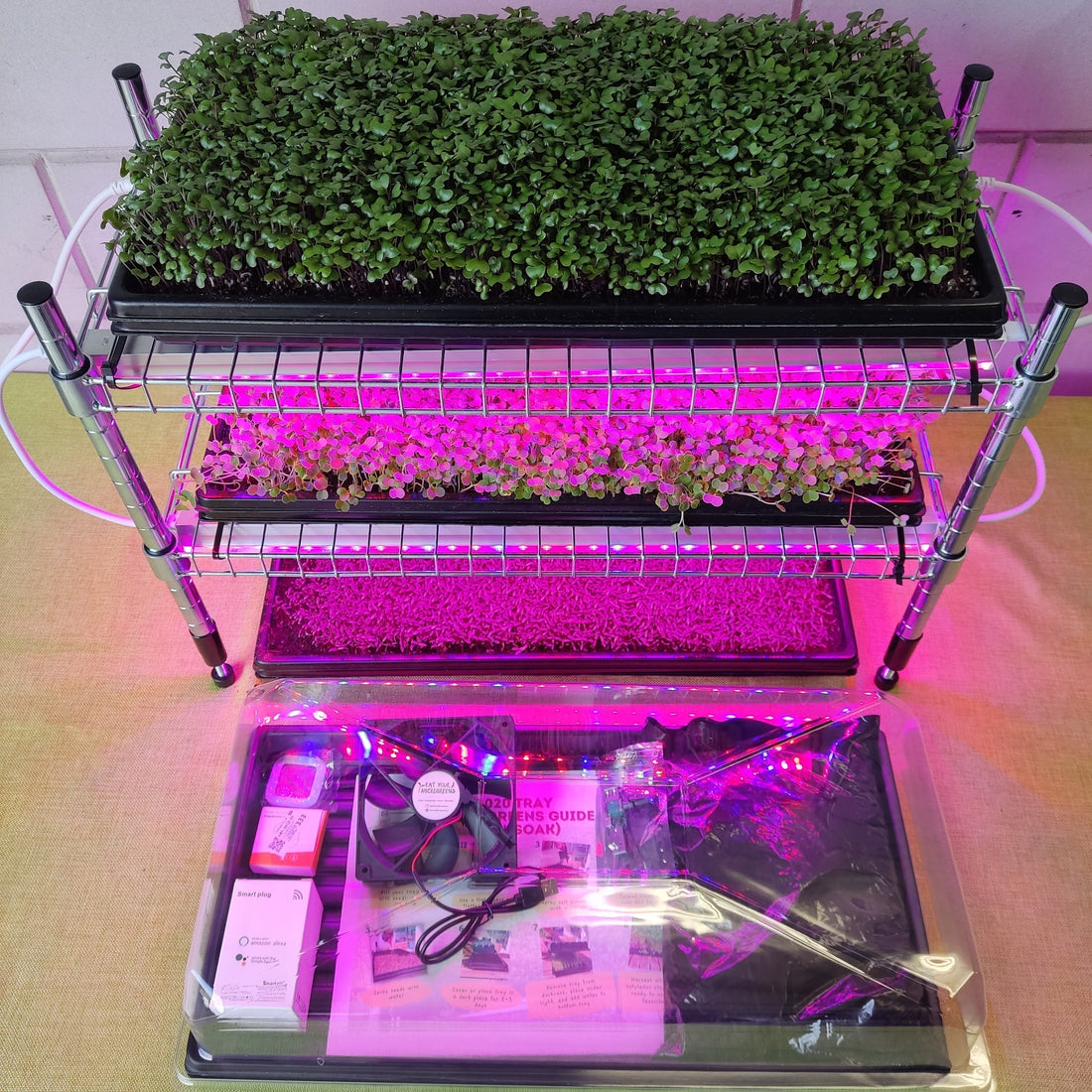
Sustainability vs. Scarcity: The Challenges of Navigating Market Economics
Share
At Eat Your Microgreens, sustainability and circularity guide our mission to create food systems that are efficient, regenerative, and accessible. However, operating within a commodities-based economic system—where scarcity drives value—often feels like swimming against the tide.
Market forces reward scarcity, making abundance counterintuitive in terms of profit. In a world where food and energy could be made widely available through sustainable innovation, the economic structure often restricts access or drives up costs. For example, small-scale producers like us face significant barriers to visibility in large supermarket chains or distributors, where access to shelf space comes with exorbitant fees. I have witnessed firsthand, the unfortunate state of the food supply, apes loyal to their monetized partners, turning a blind eye to innovation and sustainability as life gets easier. Without addressing this and the food system as a whole, scaling our approach to feeding the city becomes both financially and logistically prohibitive.
Our efforts to upcycle materials and prioritize energy efficiency (i.e. solar system to power our farm) should logically lower costs and improve resource availability over time. However, the market’s emphasis on short-term gains discourages long-term investments in circular models. The result? Technologies and methods that could revolutionize food production and distribution remain limited to niche markets, unable to compete with large-scale, resource-intensive systems that thrive on inefficiency.
Even as we work to make our products sustainable and accessible, the cost of doing so often outweighs the financial returns. This paradox—where sustainability creates value for society but struggles to align with market incentives—exposes the deep flaws in a system that prioritizes profit over progress.
At Eat Your Microgreens, we confront these barriers daily. Our modular grow systems, designed to reduce waste and energy consumption, are a testament to what’s possible. But without systemic change, these efforts remain constrained by an economic framework that makes doing the right thing harder and more expensive.
We believe in a future where abundance is not punished but celebrated—a future where sustainable practices are not just the ethical choice but the economical one. The ability to customize and manufacture a few new modular growing systems locally with the use of a 3D printing technology has proven the importance of adapting to the technological possibitlies that push the needle a bit further in the right direction. Just like that, we’ll keep challenging the status quo, one microgreen at a time ;).
